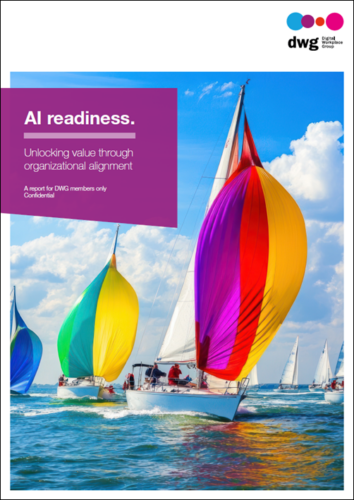Has COVID-19 changed our work culture for the better?
The arrival of COVID-19 has changed the way we work beyond all recognition. We consider why that might not be a bad thing…

The global pandemic has shaken up our way of life considerably. Nationwide lockdown measures meant remote work became the new normal and digital connectivity became more important than ever.
We’ve also had to adapt like never before. As we’ve seen pubs pouring takeaway pints and news journalists reporting from their kitchens, workers have adapted at a breakneck speed to keep going.
As a result, the way we work looks incredibly different. From how we interact with one another to our impact on the world, we reflect on the positives that we could see continue.
A human-centred culture
An extraordinary silver lining of the pandemic has been the solidarity shared within the workforce.
Perhaps it’s not surprising that these difficult circumstances prompted a more humane work culture. As parents juggled work with home-schooling, companies have shown flexibility and understanding. As the financial impact of the virus hit communities around the UK, companies have heavily donated to social causes.
Companies have softened in a way they never have before – and the ethical and human-focused policies we’ve seen over the past few months should benefit workers far beyond the pandemic.
A greener future
With remote working in full swing across the UK, the roads have never been emptier during rush hour. Along with a better work-life balance and higher employee satisfaction, a reduction in commuting will have it’s most tangible effect on the environment.
The environmental benefits have been clear – as air pollution considerably dropped during lockdown, businesses have seen the impact their commute has on the world.
Edmund King, President of the UK’s Automobile Association, remarked:
“People travelling to hold meetings is inefficient, expensive and damages the environment, and we expect road, rail and bus use to reduce permanently after the crisis”.
While companies have been considering ways to cut down emissions for years, COVID-19 has been the abrupt wake-up call many have needed.
For many companies, remote work was never an option until now. The mandatory lockdown measures have meant many companies have now realised remote work is perfectly achievable – and can even boost productivity amongst workers.
Flexible remote working is likely to be the new normal for years to come. Combined with initiatives like our Work Miles Movement, you can significantly reduce your carbon footprint and help to improve the world around you.
A digital awakening
COVID-19 proved to be a shock for companies who hadn’t invested in their digital workplace.
The pandemic has reinforced the digital workplace as a matter of essential business resilience. The companies without a digital presence effectively found themselves without work overnight.
A retail example would be Primark. With no online shopping to speak of, Primark’s sales plummeted to zero in days. This concept is mirrored in office workplaces – without the means to continue working remotely, you could risk falling behind competitors.
Focusing on the digital workspace has been long overdue for many companies. As working from home has been largely mandatory, companies have now invested heavily in digital transformation – guaranteeing resilience and continuity for years to come.
A new living age
In March, the UK watched in amazement as the 4,000-bed Nightingale Hospital was erected in just nine days. But the speed and agility we’ve seen during the pandemic didn’t end there; businesses all over the country accelerated their decision-making like never before.
Both logistical and financial decisions needed to be made overnight, as companies tore down restrictive red tape. In doing this, senior management engaged with the front lines of their organisations much more frequently; enabling a more cohesive and unified workforce.
This different way of work has paved way for a new “living age”. With renewed efficiency, businesses are slashing bureaucracy and red tape. Too many hierarchies and structures can impede progress – a revelation which COVID-19 has made all too clear.
A wider talent pool
Distance is no longer the obstacle it once was in the working world. Since meetings have successfully continued from home (bar the odd interruption), it no longer makes sense to travel across the country to host interviews or commute to workplaces.
Limited from physical workplace restraints, it’s now becoming normal to hire from a broader geography. The result? A more diverse, adaptable, and talented workforce.
COVID-19 has paved the way for unlimited change in the way we work. Discover more opportunities in our Decade of Courage Manifesto – download your copy for free.
Take the next step…
Categorised in: Uncategorized

